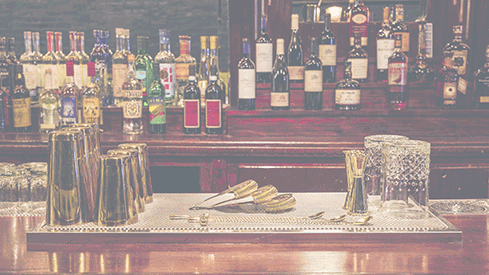1966 was a very pivotal year in the existence of the Beatles. Their 7th album, Revolver, was recorded at EMI/Abbey Road Studios-London in the spring/summer of 1966 and released on August 5 1966, marking the beginning of the Beatles stage of experimentation (or psychedelic period), both in terms of musical style and the techniques they used in the studio. An innovation first used on Revolver known as automatic double tracking (ADT) was invented by the engineers at Abbey Road studios and soon utilized throughout the recording industry. ADT used “tape delay to create a delayed copy of an audio signal which was then combined with the original. The effect was intended to simulate the sound of the natural doubling of voices or instruments achieved by double tracking.” While ho-hum today it was a pretty wow thing at the time.
This album marked a shift in the band’s creative force, from a John Lennon dominated group pre-1966 to Paul McCartney dominated 1966 and beyond. George Harrison also became a larger creative force within the band. LSD usage and an interest in “the illusory nature of human existence” figured prominently in the writing of Lennon and Harrison on Revolver (Tomorrow Never Knows, She Said She Said), whereas McCartney, who abstained from LSD, wrote of more conventional themes (Eleanor Rigby, For No One). It was also during this period that Lennon and Harrison both began voicing their displeasure of Beatlemania and fame, fueling rumors of a breakup. And it was in 1966, almost immediately following the release of Revolver, that Lennon’s famous "bigger than Jesus" comment was quoted in a US teen magazine (although it had actually been said during an interview in March).
The title Revolver is a pun - a kind of handgun and the revolving motion of the record as it is played on a turntable. Other suggested names for the album prior to deciding on Revolver were: Abracadabra, Four Sides of the Eternal Triangle, Magic Circles, Beatles on Safari, Pendulum. See if you can guess which one of those Lennon wanted. A number of notable musicians lent uncredited background vocals on “Yellow Submarine” – Marianne Faithfull, Donovan, Brian Jones of the Rolling Stones, and Pattie Boyd (aka “Layla”).
The album was widely accepted by both fans and critics, reaching #1 in the US, UK, Australia, Sweden and West Germany, and sold 1.2 million copies in 1966. The cover artwork, by Klaus Voorman, also earned a 1966 Grammy award. However, things had changed. While the boys from Liverpool still had more good music in them, the happy go-lucky days of the Beatles largely had passed.
Help was in stark contrast to Revolver even though it had been released only a year earlier on August 6, 1965 (with Rubber Soul sandwiched in between). Help, also recorded at EMI/Abbey Road Studios-London, had much more of a pop sensibility and feel to it than what much of the remaining Beatles catalog would…which had a darker, heavier feel at times. As was somewhat typical for the Beatles, the UK and US releases differed. The UK version was a true album release whereas the US release was the actual soundtrack to their film of the same name (including 5(!) instrumentals) and did not include 7 tracks that were on the UK version. The UK version also contained two covers – the Larry Williams penned 'Dizzy Miss Lizzy', and 'Act Naturally', which had been previously recorded by Buck Owens and The Buckaroos.
This album too was well received by critics and fans, reaching #1 in the UK, US, Germany and Australia, selling 1.3 million copies in 1965. If you liked your Beatles sweet and nice, this album was one of your last opportunities to get it.
Get your moptop on.
